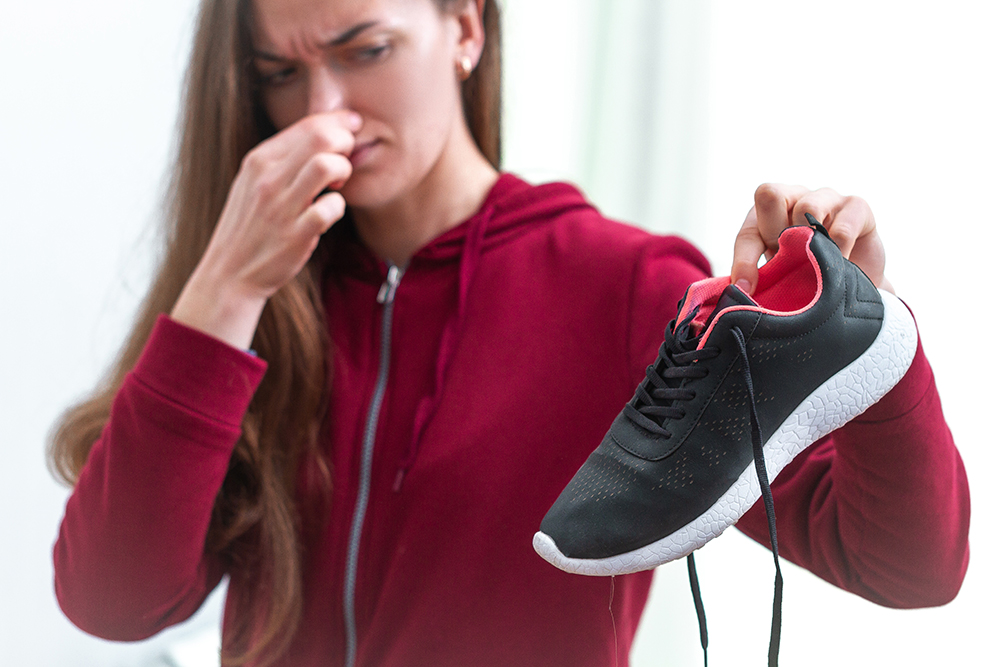Foot odour, formally referred to as “bromodosis”, is a common (albeit extremely unpleasant) condition suffered by not just the owners of smelly feet, but by those around them as well.
Like virtually all other types of body odour, the cause of stinky feet is generally excess bacteria growth. Athlete’s Foot and other fungal infections can also lead to foul-smelling feet.
Because our feet contain more sweat glands per square inch than any other part of our bodies (yes, even our armpits!), those glands can collectively produce a lot of sweat.
And let’s face it, we often have our feet wrapped up in socks and full-coverage shoes, which can exacerbate the problem. That, coupled with prolonged activity, can create a pretty moist environment, where bacteria can thrive.
Now, if shoes are permitted to dry out between uses and socks are changed regularly, bacteria don’t have a chance to flourish. However, we often don’t give our footwear the necessary time to air out before wearing it again.
Work shoes, athletic shoes, and winter boots can be some of the worst victims/culprits because of the way they are used and length of time they are worn.
Those most prone to excessively sweaty feet tend to be teenagers and pregnant women, as their elevated hormone levels trigger additional sweat production. Of course, inadequate hygiene practices can also contribute to foot odour.
Fortunately, despite foot odour being so common, remedies are both accessible and inexpensive. Treatment typically can be accomplished through improved hygienic habits and some topical applications using ingredients you probably already have.
Preventative Measures to Keep Feet Dry and Odour-Free
- Keep feet and toenails clean using soap and a gentle brush to scrub daily. Ensure feet, especially between toes, are dried completely.
- Bacteria likes to hide in cracks and crevices. Keep toenails trimmed and dead skin exfoliated, and ensure cracks and scratches are cleaned and protected to prevent infection and speed healing.
- Socks should be made of breathable/moisture-wicking material. Generally, sports socks are a good choice, as they are specifically designed to be moisture-wicking. Non-sports socks made of natural fibers, like cotton or wool, are also excellent.
- Either allow footwear to dry out between uses or have two pairs so you can alternate them. If insoles get wet, consider removing them from the shoes when not in use. This will accelerate drying time.
- When you can, choose open sandals during warmer weather. While feet still sweat in open footwear, air circulation is much improved. Consider going barefoot when indoors as well.
 Products and Topical Applications to Address Smelly Feet
Products and Topical Applications to Address Smelly Feet
- To quickly reduce/eliminate foot odour, apply an anti-perspirant/deodorant.
- Add deodorant/odour-fighting insoles to your frequently used footwear.
- Apply powder or corn starch to feet/socks/shoes every day.
- Use antifungal products like soaps and sprays on your feet daily.
- Create a foot soak using water and vinegar. Because of its antibacterial properties, diluted Listerine also works.
Prevention is the best way to keep excessive sweating and foot odour under control. However, if it has already taken hold, there are several options above for reining it in. If your condition cannot be remedied using the suggestions above, be sure to contact your doctor who can prescribe a stronger treatment.

